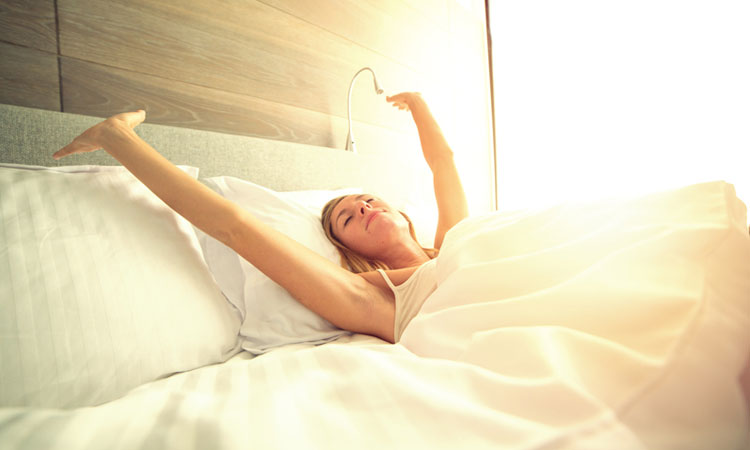How to make your hotel room healthier
During a recent trip, my flight was cancelled, and the next flight wasn’t until late that night. I had a decision to make: stay in a hotel or fly through the night. Speaking with fellow frustrated passengers, it was interesting to hear how sleep impacted their decision making process. Normally, I’m the type of person who wants to get where I’m going – and the sooner, the better. But in this case, I had an important event the following day that I knew I had to be rested for, so I decided to take the morning flight, which would still get me to my destination in plenty of time.
It can be difficult getting a good night’s sleep away from the comfort of our own bed. Since many of you will be traveling this summer, I wanted to share some great ideas from the New York Times article, “Deepak Chopra’s Tips for a Healthier Hotel Room” – to help you get more restful sleep while traveling:
1. Open a window for better air circulation
The air quality in a hotel room is negatively impacted by the cleaning products, furniture and paint, which may contain toxic ingredients. This can make you tired and more prone to headaches. Chopra suggests opening a window for better air circulation.
2. Use an alarm clock that simulates dawn
Waking up abruptly to a loud hotel alarm clock is not the best way to start your day. Chopra recommends bringing a dawn-simulating alarm clock with you. This alarm clock slowly brightens your room, which is a more natural way to wake up.
3. Reduce your germ exposure
A simple solution to reduce germs is to wipe the doorknobs, telephone and television remote with antibacterial wipes. Bedspreads are known to be a breeding ground for germs, which is why many hotels use duvets. If your hotel doesn’t have duvets, you can ask to have your bedspread laundered.
4. Avoid the minibar snacks
The snacks in your hotel room are usually processed and filled with artificial ingredients. “Eating these processed and sugary foods is hard on digestion and can cause your energy levels to drop,” according to Chopra. Avoid the temptation by bringing healthy alternatives of your own.
5. Get more natural light in the room
When you’re traveling, try to get a room with a window that faces the street instead of another building. Keep the curtains open and let the natural light come through. At night, unplug all electronics that give off artificial light. Chopra explains that natural light can improve your sleep, energy and mood because light supports your body’s biological clock and sleep-wake cycle.
Are there any helpful travel tips you use for better sleep on the road? Share them in the comments!
Post Disclaimer
This content is for informational purposes only and does not constitute medical advice. Please consult a healthcare professional for any medical concerns.



